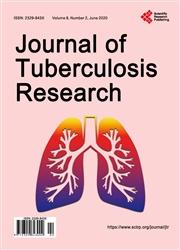A Qualitative Assessment of People-Centeredness of Inpatient Tuberculosis Treatment Services in Armenia
引用次数: 1
Abstract
Background: People-centered tuberculosis (TB) care promotes treatment adherence and outcomes. TB patients’ and families’ health education and protection of their rights are among the core components of people-centered care. We aimed to assess the level of people-centeredness of TB care as a proxy to quality in the largest inpatient unit of the National Pulmonology Center (NPC) in Armenia. Methods: We conducted a qualitative study by interviewing clinical and administrative staff, TB patients, and family members to learn their experiences about patient and family education and rights (PFE&R) protection practices focusing on two Joint Commission International (JCI) Standards for Hospital Accreditation. Mixed-conventional inductive and directed deductive content approach guided the analysis of data. Results: The study revealed various gaps in the provided services. According to the TB physicians and nurses, they routinely educated patients and families and took actions to protect their rights. However, practices reported by TB providers varied across clinical departments and professionals and did not meet the recommendations of the JCI standards. The document review revealed that no written policies or procedures existed in the NPC inpatient unit to guide the implementation of PFE&R. Lastly, patients’ inconsistent experiences were also indicative of the lack of standardization and issues with PFE&R implementation. Conclusion: Bridging the gap between existing and recommended practices by establishing and enforcing new people-centered policies and procedures is a pledge for improving operations and patients’ experiences with a potential nationwide impact in Armenia.亚美尼亚肺结核住院治疗服务以人为本的定性评价
背景:以人为本的结核病(TB)护理促进治疗依从性和结果。结核病患者及其家属的健康教育和保护他们的权利是以人为本的护理的核心组成部分。我们的目的是评估以人为本的结核病护理水平,作为亚美尼亚国家肺病中心(NPC)最大住院单位质量的代理。方法:采用质性研究方法,对临床和行政人员、结核病患者和家属进行访谈,了解他们在医院认证的两项国际联合委员会(JCI)标准中对患者和家庭教育和权利保护实践的经验。混合传统归纳和直接演绎内容方法指导数据分析。结果:研究揭示了所提供服务的各种差距。据结核病医生和护士说,他们定期对患者和家属进行教育,并采取行动保护他们的权利。然而,结核病提供者报告的做法因临床部门和专业人员而异,不符合JCI标准的建议。文件审查显示,全国人大住院部没有书面政策或程序来指导PFE&R的实施。最后,患者不一致的经历也表明缺乏标准化和PFE&R实施的问题。结论:通过建立和执行新的以人为本的政策和程序,弥合现有做法和建议做法之间的差距,是改善手术和患者体验的承诺,在亚美尼亚可能产生全国性影响。
本文章由计算机程序翻译,如有差异,请以英文原文为准。
求助全文
约1分钟内获得全文
求助全文

 求助内容:
求助内容: 应助结果提醒方式:
应助结果提醒方式:


